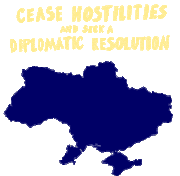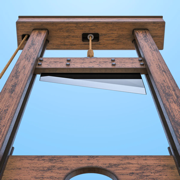|
RE: Afghan elections this year What are the demands of ethnic minorities in the north of the country? Stable, fair representation? A break-off state? Merging their ethnic-plurality/majority territories with Uzbekistan or Tajikistan? I'll admit I haven't paid much attention to Mazar and Kunduz since 2002 and the Northern Alliance.
|
|
|
|

|
| # ? May 23, 2024 12:35 |
|
Aliquid posted:posting this to trigger Al-Saqr Hey, Al-Waleed: fire your advisor. He's poo poo.
|
|
|
|
Cat Mattress posted:Hey, Al-Waleed: fire your advisor. He's poo poo. He's detained at the ritz-carlton on like a four billion dollar ransom. He's got bigger problems.
|
|
|
|
Cat Mattress posted:Hey, Al-Waleed: fire your advisor. He's poo poo.
|
|
|
|
Squalid posted:It concluded by saying that it would definitely be in the Taliban's best interest to cut a deal for amnesty and a few seats in the executive cabinet did the brain genius who wrote this piece assume that the jamiat, junbish and literally every other "former" militant group turned political party would just stand around and let this happen?
|
|
|
|
https://twitter.com/ragipsoylu/status/952606302252994560 Good luck with that. Erdogan asking anyone else to be quiet about anything is kind of funny given that he's right up there with Kim Jong Un, Trump and Netanyahu in the competition for the most blustery leader of a country.
|
|
|
|
Aliquid posted:posting this to trigger Al-Saqr lol how would this trigger me? I know that american finance are scumbags and I legitimately despise waleed bin talal because he was one of the biggest media monopolies in the middle east and played a huge role in propaganda and infantilizing gulf society and shutting out moderate and progressive opposition and forward thinking people out of arab media. nothing would make me happier than to see Waleed Bin Talal Drawn and Quartered. The only people I legitimately feel bad for are the normal business men and scholars who were arrested back in september, Salman Al Odah for example is still a wahhabist but he actually had good principles and actually put himself in considerable danger for the sake of human rights and some freedoms. That's a guy I actually feel bad for. Al-Saqr fucked around with this message at 20:37 on Jan 14, 2018 |
|
|
|
Aliquid posted:RE: Afghan elections this year I think they would say they want "fair representation." Pashtun guys like Hekmatyar would probably say the same thing. What most of the political contests are actually about is control of patronage networks. Afghanistan is the second most corrupt country in the world, and a huge proportion of the GDP is in the form of foreign assistance. Much of that foreign money passes through the hands of the central bureaucracy who siphon off as much as possible passing it down the chain to their supporters. Afghanistan is similar in many ways to a lot of other diverse nations in Africa and Central Asia. Without a well developed civil society leaders look for support in the old social structures of their clan/tribe/ethnicity, instead of the labor unions, business networks, or other such interest blocks that make up political parties in wealthy liberal democracies. Since 2002 the Afghan government has maintained a delicate balance in access to power and patronage between the communities, facilitated by the liberal application of money by NATO as well as carefully negotiated political deals like the one that created the new post of Chief Executive of Afghanistan for Abdullah Abdullah after the disputed 2014 election. However these governments are at risk of suffering a capture of power by one identity group. This is what happened in Syria, where the Alawites came to occupy almost all positions of importance in the government. Similar circumstances prevail in many African states, as well as all of the post-Soviet Central Asian Republics. This makes the government inherently unstable as it comes to rely on only a small segment of the population for support while cutting the majority out of access to resources. The important thing isn't what community the President ultimately comes from, but whether they will be willing/capable of balancing the distribution of patronage. If they are perceived to be cheating the other communities it will be trouble. TheIllestVillain posted:did the brain genius who wrote this piece assume that the jamiat, junbish and literally every other "former" militant group turned political party would just stand around and let this happen? Well you can read it yourself here: https://www.foreignaffairs.com/articles/afghanistan/2018-01-03/why-taliban-isnt-winning-afghanistan quote:Faced with such limited prospects, Taliban leaders should begin serious peace negotiations with the Afghan government, something they have been reluctant to do, perhaps because they believed they had the upper hand on the battlefield. Pushing the Taliban to begin serious settlement talks—in particular, sitting down with Afghan government representatives—will likely require sustained efforts by the United States and regional partners, especially Pakistan. Terrible article, though everything in it as more-or-less factually true. But god if it doesn't pointedly ignore a lot of context. I mean hmm. . . I wonder what differences there are in the circumstances of the Taliban vs FARC that might have made the latter more willing to negotiate than the former? Squalid fucked around with this message at 21:00 on Jan 14, 2018 |
|
|
|
hey im curious about something, what's the consensus on whether assad will roll over and try to assert control again over rojava in the future?
|
|
|
|
The western coverage of Tunisia right now is comical, eg http://www.bbc.com/news/world-afric...reporting-story « Hundreds » of people protested on av habib Bourguiba today (major street in centra Tunis, though it’s been largely closed to traffic for years and is almost a pedestrian mall now). Hundreds is an absolutely tiny turnout considering it’s Sunday and a national holiday for the 7th anniversary of the revolution. I’m staying one block off Habib Bourguiba and walked through it today at 9:30am—there was some set up with banners and stuff, but not particularly many people, and when I walked back again at 9:30pm it was nothing but a few watching football in the cafes there. Naturally there probably was a demonstration there since there are photos, but it’s so emphemeral and tiny it’s comical that western media is even covering it. A friend of mine here works in a bank on av Bourguiba and he said he was looking out his window when people were askinge « whoa le temps is reporting huge protests in tunis!! » and he was like « yeah there are maybe twice as many people here as an average day ». I guess media needs something to report on when it’s not making up new words for « big storm » like « bomb cyclones « or whatever the gently caress. I would never know there were protests a block away from me if it wasn’t for the news.
|
|
|
|
Kanine posted:hey im curious about something, what's the consensus on whether assad will roll over and try to assert control again over rojava in the future? Basically that of course he'll try at some point, and other regional actors will have incentives to help him test the limits at the very least, but that he'd be stupid to provoke war across the giant front he shares with them right now even if the US would be willing to stay out of it (which is unlikely in the short term at least), because he still has problems closer to home to mop up. The SAA's biggest problem over the last year+ has been that they had the ability to win battles on one front at a time, but would have to interrupt campaigns to deal with problems elsewhere because the backup forces couldn't hold the line, so now that this problem has abated somewhat they need to take advantage of it instead of squandering that advantage. The main problem with waiting is that Turkey's potentially going to grab more territory on their own, and if Turkey wants to keep that territory forever they're in a stronger position to do so than the YPG. Turkey's been pretty casualty averse so far though, so if the US ever stops backing the Kurds in the east, either Turkey or the YPG would probably make a deal with Assad. Dr Kool-AIDS fucked around with this message at 22:16 on Jan 14, 2018 |
|
|
|
another rabid dog dies, thank goodness. https://twitter.com/weddady/status/952559628298145792
|
|
|
|
Sinteres posted:Basically that of course he'll try at some point, and other regional actors will have incentives to help him test the limits at the very least, but that he'd be stupid to provoke war across the giant front he shares with them right now even if the US would be willing to stay out of it (which is unlikely in the short term at least), because he still has problems closer to home to mop up. The SAA's biggest problem over the last year+ has been that they had the ability to win battles on one front at a time, but would have to interrupt campaigns to deal with problems elsewhere because the backup forces couldn't hold the line, so now that this problem has abated somewhat they need to take advantage of it instead of squandering that advantage. I think the situation improved for the SAA enough they could launch an offensive and either hold another front or at least re-capture it fairly quickly. It seems their capabilities in Ildib are holding up fairly well despite support from Turkish backed rebels. Erdogan is in a bit of a conundrum at this point, he is unwilling to let Ildib fall entirely but at the same time, YPG is probably is his most logical target and he can't really fight on both fronts and win. Pretty much every assault against Afrin has failed, while the SAA is still on the offensive. Does he eventually give up on HTS and concentrate on the YPG or facilitate until he has nothing to show for his effort.
|
|
|
|
Ardennes posted:I think the situation improved for the SAA enough they could launch an offensive and either hold another front or at least re-capture it fairly quickly. It seems their capabilities in Ildib are holding up fairly well despite support from Turkish backed rebels. We're seeing that now as they're losing bites here and there off their salient in Idlib, but at the same time they're swallowing up giant chunks of the area to the east they mostly pocketed. That's still a big difference from facing a giant front with the SDF though, particularly since that front is a lot farther away from the center of their Russian air support (which may be dwindling, depending on who you believe). Ardennes posted:Erdogan is in a bit of a conundrum at this point, he is unwilling to let Ildib fall entirely but at the same time, YPG is probably is his most logical target and he can't really fight on both fronts and win. Pretty much every assault against Afrin has failed, while the SAA is still on the offensive. Does he eventually give up on HTS and concentrate on the YPG or facilitate until he has nothing to show for his effort. He announced that the campaign agianst Afrin is imminent today, and while we've heard that before, it seems like people are taking it pretty seriously this time. He talked about Manbij yesterday too, but that seems more like a long term goal than something he's in a position to take on right now.
|
|
|
|
Sinteres posted:We're seeing that now as they're losing bites here and there off their salient in Idlib, but at the same time they're swallowing up giant chunks of the area to the east they mostly pocketed. That's still a big difference from facing a giant front with the SDF though, particularly since that front is a lot farther away from the center of their Russian air support (which may be dwindling, depending on who you believe). I don't think the SAA has the capabilities to take on the SDF especially if they gain US air support (which they probably would). As far as Russian air support, supposedly still active but the Russian government has probably limited its commitment at this point. That said, the SAA seems to be on a fairly rapid advance. As for Turkey, I think an Afrin offensive would probably take most of their resources.
|
|
|
|
Kanine posted:hey im curious about something, what's the consensus on whether assad will roll over and try to assert control again over rojava in the future? Assad himself would likely like to take back direct control of the North Syria area, but it's much much lower on his priority list than any rebel-held areas like Idlib, Ghouta, and South Syria. Right now the regime and the SDF have a "de confliction line" set up along the Euphrates that runs from east of Tabqa to basically all the way down to Abu Kamal on the border, and there haven't really been any notable incidents other than both sides jockeying for land around Deir Ez Zor. The first big outside factor is Russia. Russia has an acceptable working relationship with the SDF in the Afrin area (and even has a small base there, if I recall correctly), and more generally, Putin's goal with Russian intervention in Syria was to shore up Assad's grip on power and protect Russia's warm-water military sea port in Tartus. The port is what Russia truly cares about in Syria, not whether Assad personally controls every inch of the country. In this vein, the SDF being a continued check on Assad's power is acceptable to Russia, since it keeps Assad more dependent and reliant on Russia. Russia has already started drawing down forces in Syria, as seen by that clip earlier in the page where Russian air support is currently MIA in Idlib. So however much Assad might (or might not) want to go after the SDF, he would likely have to do it without Russian air support, and the SAA is... kinda crappy without Russian air support. (Hell, they're kinda crappy with Russian air support.) The US's new plan seems to be sticking around in North Syria for the foreseeable future. There was a two-hour senate hearing a couple days ago on the US's continued role in Syria, it's an informative watch, if a bit long: https://www.foreign.senate.gov/hearings/us-policy-in-syria-post-isis-011118 The hearing posted:>>So what are the conditions by which we bring those troops home? Is it the military defeat of ISIS? Is it the withdrawal of Iranian and Iranian backed forces? Is it free elections and political stability? How do we communicate to our constituents what the end game is for military presence there? So basically, we're never leaving Syria.
|
|
|
|
That is more or less the reason why I think Turkey will probably trend closer to Iran/Russia in the medium term, while Ildib very likely will fall (sooner or later) and Erdogan may be pissed about it, in the long-term US support for the YPG is probably going to take a priority. If the US isn't going to leave it is probably going to continue to disrupt Turkish-US relations since a hostile and decently armed semi-independent Kurdish state is so contrary to what Ankara wants.
|
|
|
|
Ardennes posted:That is more or less the reason why I think Turkey will probably trend closer to Iran/Russia in the medium term, while Ildib very likely will fall (sooner or later) and Erdogan may be pissed about it, in the long-term US support for the YPG is probably going to take a priority. If the US isn't going to leave it is probably going to continue to disrupt Turkish-US relations since a hostile and decently armed semi-independent Kurdish state is so contrary to what Ankara wants. On that note, a bonus to the previous post, the US's new line on the SDF-YPG-PKK connection and Turkey: quote:>>I wanted to get your sort of big picture forward looking thought about the way we handle a continuing partnership with the Kurds in honor of the work they've done and their place in the next chapter of Syria with this challenge we have with Turkey's suspicion of any partnership that we have with Kurds in northern Syria. So yeah I think you're right, the US has accepted that continued long-term support for the SDF comes at the cost of a pissed-off Turkey flirting with Russia/Iran, and that's an acceptable price to us. Saladin Rising fucked around with this message at 00:11 on Jan 15, 2018 |
|
|
|
Yeah, I don't think Erdogan (or really Turkish nationalists in general) are going to ever accept the YPG/SDF as anything but the Syrian branch of the PKK. I assume the big gain for us is to be able to monitor and put pressure on Pro-Assad/Hezbollah supply lines coming out of Iraq. Of course, it is a bit of a gamble, especially if Erdogan is eventually forced into a corner.
|
|
|
|
Ardennes posted:Yeah, I don't think Erdogan (or really Turkish nationalists in general) are going to ever accept the YPG/SDF as anything but the Syrian branch of the PKK. I assume the big gain for us is to be able to monitor and put pressure on Pro-Assad/Hezbollah supply lines coming out of Iraq. Of course, it is a bit of a gamble, especially if Erdogan is eventually forced into a corner. This also assumes Iraq doesn't decide at some point that they no longer want to allow us to use their country as a supply line for Kurdish separatists for the purpose of pressuring their allies.
|
|
|
|
Sinteres posted:This also assumes Iraq doesn't decide at some point that they no longer want to allow us to use their country as a supply line for Kurdish separatists for the purpose of pressuring their allies. Admittedly, that would be a pretty big step from Iraq, and to be honest we probably would just reinforce by air through Jordan/Al-Tanf since the SAA has no real way to control its airspace in the east.
|
|
|
|
Ardennes posted:Admittedly, that would be a pretty big step from Iraq, and to be honest we probably would just reinforce by air through Jordan/Al-Tanf since the SAA has no real way to control its airspace in the east. Seems like that would violate the deconflict line with Russia, but it is a possibility.
|
|
|
|
Sinteres posted:Seems like that would violate the deconflict line with Russia, but it is a possibility. Yeah, but in all honesty, everyone knows that shooting down American transport aircraft would unleash a shitstorm (I don't think the Russians would ever do this).
|
|
|
|
Overall I think Russia has to be pleased with the situation in Syria and so long as rebels continue to face defeat and reconciliation they will wind down their presence and eventually offer only token aid as opposed to carrying Assad's forces to the finish line. Idlib has been fundamentally altered because, no matter the result of the Abu Duhar objective, the spinal supply chain that was the Khanasar road is well behind frontlines on both sides for the first time this conflict. Assadian front lines continue to shrink appreciably even as they suffer heavy attrition to secure territorial aims. With ISIS removed from the picture and a truce in place with the SDF/YPG it's only a matter of time before the rebel held areas are squeezed into submission, even if it comes at a heavy cost of men and material, simply due to the sheer scale of the advantage held by the Assadian's even if Russia removes itself from the picture (and it will always maintain at least a symbolic position). The Kurds really have positioned themselves well throughout this conflict if they're going to walk away with not just a third of Syria, with two incredibly important anchors on the west side of the Euphrates, but also the backing of a super power down on its luck and looking to firm its footing. Going back to Russia I'm not really sure they care if the US has a long term presence in Syria. As has been mentioned they have secured their warm water port and benefit with Israel if they aren't seen to be allowing a regional rival to base themselves at doorstep to Judea and may benefit with an additional lever of influence to push against the US, Assad as well as Turkey and Iran. Plus with the US involved through the Kurds the onus doesn't fall to the Russians to clean up the infinite disaster that is the Middle east. Interesting propaganda right now too..."ISIS has been defeated we can end most of our involvement in Syria." versus "We must support our local partners to ensure the long term defeat of ISIS in Syria." Erdogan's statements have begun shifting wildly again. Three or so weeks ago he called for a Syria without an Assad, he summoned Iranian, Russian and Syrian ambassadors over the extent of the Idlib offensive (posturing? I thought it was all agreed upon in Astana) and there does seem to be an uptick in sophistication employed by the rebels. Several drones were shot down this past week and there was the mass drone attack with precise GPS coordinates on the Russian base in Latakia. Then we have a great deal of noise and additional troops and weaponry heading towards Afrin in addition to the standard 'we will destroy afrin and the dirty kurd, the filthy unsullied kurd who lives there (in afrin(in syria))' nonsense. This is part of what I meant by not being worried about him just cutting ties and land routes to the United States. Erdogan is a self important poo poo heel who has maneuvered Turkey into quicksand with no realistic objectives or ways out. As he turns from the West can he really come to terms with what a turn towards Iran or Russia would give and cost? Erdogan wants to dominate the Middle East not enable another faction to seize control of it. He turned sub to Putin and Russia fairly quickly after the jet crashed due economic and social leverage...but what would sort of agreement can he and Iran offer each other? In other words, who wants to even loving put up with Erodgan and his poo poo? He's the Turkish Trump without the excuse of dementia.
|
|
|
|
Watching another regime versus rebel offensive made me think of other campaigns in Syria. This is one that I'll remember from the war. Battle of Taqba https://en.wikipedia.org/wiki/Battle_of_Tabqa_(2017) quote:On 22 March, the SDF began an assault to capture the Tabqa Dam, al-Thawrah (Tabqa) city, and the Tabqa Airbase. 500 SDF fighters and 500 US Special Forces from CJTF–OIR were airlifted by helicopters of the United States military across the Euphrates river and Lake Assad, and were dropped on the Shurfa Peninsula to the west of Tabqa city. The attack was supported by artillery support from United States Marines, as well as air support. SDF and US forces also landed on the Jazirat al-'Ayd Island (or Peninsula) to the west of Tabqa Dam, capturing it as well. An anti-ISIL coalition spokesman announced that the advance had cut off the highway linking the Aleppo, Deir ez-Zor, and Raqqa Governorates After a shock aerial assault that cut across the Euphrates ISIS saw their supply lines cut and the city of Taqba besieged within days. There were minimal prepared defenses for an extensive city that would otherwise have been a fortress. ISIS was quickly cut off and overwhelmed and much of the city was captured in a few weeks time with minimal damage to the infrastructure. quote:The SDF, moving to take Raqqa, positioned themselves around the city as part of the second phase of the operation. However, as part of this, they encountered IS forces dug in around the Tabqa Dam, west of Raqqa city. Because of the dam's fragility and strategic importance, the SDF could not immediately move on the dam, and there were concerns it could break and cause flooding. ISIL had threatened to open the floodgates if the dam was attacked, which would destroy many villages downstream. With no time to prepare defenses for the city ISIS took the dam hostage and threatened to floor everything down river. Within weeks even ISIS forces in entrenched positions were overwhelmed and the SDF declared total control over Taqba city and dam within a month and a half of the operation being launched. This campaign has a few points going for it: A) Novel use of aerial power that crippled and overwhelmed ISIS's defense of the city within weeks. Innovative and shocking tactics proved most rewarding in the SCW and this one is no exemption. B) With the SDF/US seizing the surprise and initiative Taqba was not heavily mined like almost all other cities that ISIS lost control over, meaning that there was no suicidal defensive grid for ISIS to fall back on against overwhelming assault such as in Mosul and Raqqa proper. The result was that the city was seized with minimal loss of life and minimal destruction to the city, allowing Taqba to recover far quicker. C) It's actually one of the most important cities held by the SDF. It gives a tremendously strong anchor, the lesser and second of which is Manbij, on the west side of the Euphrates and provides control over a critical dam on the Euphrates. The Russians complained that, during the battle of Deir Ezzor and the Assadian crossing of the river, that the SDF opened the dam gates and flooded the Euphrates to prevent equipment and men being delivered to the east of the Euphrates. Was that an excuse for their own failure or indicative of the tool held by the SDF? Additionally the dam is invaluable as an agricultural tool and generator of electricity and, for a faction which is threatened by isolation, that is no small thing. D) It stars US forces fighting with socialists on the other side of the planet. It's a gem of a campaign in a war of mostly miserable histories.
|
|
|
|
Brother Friendship posted:Erdogan's statements have begun shifting wildly again. Three or so weeks ago he called for a Syria without an Assad, he summoned Iranian, Russian and Syrian ambassadors over the extent of the Idlib offensive (posturing? I thought it was all agreed upon in Astana) and there does seem to be an uptick in sophistication employed by the rebels. Several drones were shot down this past week and there was the mass drone attack with precise GPS coordinates on the Russian base in Latakia. Then we have a great deal of noise and additional troops and weaponry heading towards Afrin in addition to the standard 'we will destroy afrin and the dirty kurd, the filthy unsullied kurd who lives there (in afrin(in syria))' nonsense. This is part of what I meant by not being worried about him just cutting ties and land routes to the United States. Erdogan is a self important poo poo heel who has maneuvered Turkey into quicksand with no realistic objectives or ways out. As he turns from the West can he really come to terms with what a turn towards Iran or Russia would give and cost? Erdogan wants to dominate the Middle East not enable another faction to seize control of it. He turned sub to Putin and Russia fairly quickly after the jet crashed due economic and social leverage...but what would sort of agreement can he and Iran offer each other? I think it just comes down to the fact that Erdogan has contrary objectives at this point coupled with impatience. He doesn't want to play the "long game" against the Kurds, and that puts him in direct opposition ot the US while he still hopes the rebels can pull it out which puts him against Assad/Iran (and Russia but they have pulled back to a large extent). One thing is the Russians actually do need Turkey, and ironically enough the attempt coup...was a "coup" for Russian foreign policy. The Russians are building a the "Turk Stream" pipeline as fast as they can and are using their now commanding position in the Black Sea to move forward. If they can keep Russia-Turkish relations fairly stable, it gives them a second route around the Ukrainians and openly up Mediterranean markets. The project is big enough I suspect a fair amount of recent events in the Balkans have been the result of the US and Russia jockeying for position over pipeline routes (the big issue is to get through either Bulgaria/Macedonia or Greece/Macedonia to Serbia than Hungary. Also, there is also a reactor and arms sales in the works as well. For the Russians, I could see keeping Erdogan fairly happy as a priority, maybe not enough to give up entirely but take a step back. The question, of course, is can the SAA continue to make progress (which on average they still are). (Personally, I don't think Erdogan is much of a chess player but his power comes from the extreme bitterness of the rural/religious Turkish population, and holding that emotional chain has kept him power and will likely to do so.)
|
|
|
|
https://twitter.com/IvanSidorenko1/status/952676261159161859 i like how the poster thinks this is pro-gov
|
|
|
|
Squalid posted:I think they would say they want "fair representation." Pashtun guys like Hekmatyar would probably say the same thing. Anyone ever played the boardgame A Distant Plain? It's one of GMT's 4-player countinerinsurgency games, designed by a former CIA analyst. Players take on the roles of either the Coalition, the government, the Talbian or the warlords. Now, the government and the Coalition are allied and can't attack each other, whilst the warlords and Taliban are insurgent factions and nominally hostile to all other players. Now here's where it gets kind of interesting, despite being allied the Coalition and the government have different goals, victory conditions that their working towards (only one player can win), whereas the Coalition wants to build popular support for the government to the point where they can pull their troops out and declare victory the government's goals are to maintain miltiary control and build patronage networks (done by siphoning off aid money) to govern the old-fashioned way. But it gets more complicated because the Coalition is dependent on the government in order to build support, and the government is dependent on the coalition for the military strength to engage the Taliban effectively (operating alone without Coalition troops they are kind of useless), and actually siphoning off aid to patronage reduces popular support for the government, so the two have conflicting aims, but are also dependent on each other. It's kind of neat and more than a little depressing.
|
|
|
|
Abadi appears to be caving to Iran and the PMU's, after a Saturday meeting with Soleimani in Baghdad. https://twitter.com/abdullahawez/status/952278016897536003 It's reported in that thread that Sadr and Maliki would join the coalition, but this type of story is the exact sort of thing that Sadr has used to gain such influence in Iraq over the last couple years, and he's not letting the opportunity to stand up on the pulpit go. Here's some pieces from his statement. https://twitter.com/Mustafa_Habib33/status/952589377804357634 Also not sure Maliki would join rather than be the "opposition," but this is certainly the Iraq he was trying to build. It's not lost on people. https://twitter.com/Nussaibah/status/952809475760644096
|
|
|
|
My god will the cycle of sectarianism ever end
|
|
|
|
https://twitter.com/BBCBreaking/status/952804478138404864 Probably not soon.
|
|
|
|
https://twitter.com/yesar/status/952824243623899136 Lol.
|
|
|
|
https://www.washingtonpost.com/opin...m=.b701c5d6e0fequote:LAST YEAR Russia brokered a series of cease-fires, or “de-escalation zones,” in Syria, including one with the United States covering the southwest corner of the country. The Kremlin claimed its aim was to wind down the country’s civil war and lay the groundwork for a peace deal between the regime of Bashar al-Assad and rebel groups, some of them Western-backed.
|
|
|
|
A Qatari sheik apparently held in the Emirates. He went there last year, officially to try to mediate: https://english.alarabiya.net/en/News/gulf/2017/09/17/Sheikh-Abdullah-bin-Ali-tweets-message-to-people-of-Qatar.html Now he claims to be held against his will, and that the Emirates may try something to frame Qatar: http://abcnews.go.com/International/wireStory/qatar-exile-held-uae-abu-dhabi-denies-claim-52340219
|
|
|
|
Cat Mattress posted:A Qatari sheik apparently held in the Emirates. He went there last year, officially to try to mediate: Al Jazeera reported there were signs that Saudi Arabia was trying to install this guy as a puppet emir in Qatar during the blockade.
|
|
|
|
MiddleOne posted:My god will the cycle of sectarianism ever end You have to be more specific, where, and when?
|
|
|
|
Peace de Bundy posted:You have to be more specific, where, and when? Iraq. I would settle for it at least not being actively encouraged by whomever is in control of Baghdad for a few years. Joke answer: The US 
|
|
|
|
It might be a bad idea for Assad to do this just because it will make Erdogan angry, but otherwise you'd think allowing it would be pretty much win/win. Either the Kurds take losses fighting off a Turkish incursion, preventing Erdogan from expanding his footprint which he'll probably be reluctant to ever retreat from after the war is over, or the YPG takes losses in a failed effort and weakens their position in the rest of the country. https://twitter.com/VivaRevolt/status/952945826908733441
|
|
|
|
P good way to test Turkey TBH. If they let them through, no way is Erdogan anything but full of poo poo.
|
|
|
|

|
| # ? May 23, 2024 12:35 |
|
Sinteres posted:It might be a bad idea for Assad to do this just because it will make Erdogan angry, but otherwise you'd think allowing it would be pretty much win/win. Either the Kurds take losses fighting off a Turkish incursion, preventing Erdogan from expanding his footprint which he'll probably be reluctant to ever retreat from after the war is over, or the YPG takes losses in a failed effort and weakens their position in the rest of the country. Letting them through is win/win for Assad really. Any conflict in Afrin will distract Erodgan from Idlib while also bleeding the SDF. I think Erodgan's anger won't be as much of a concern. The Kurds will always be a much higher priority target for him than Assad.
|
|
|



















